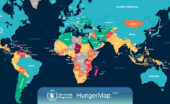Molly Minturn - My family is heartbroken to share that my father died in surgery on Monday, Feb. 10. It…
From Resource Curse to Blessing
Written by Diana Thebaud Nicholson // November 9, 2014 // Natural resources // Comments Off on From Resource Curse to Blessing
Norway proves oil-rich nations can be both green and prosperous
Conventional wisdom suggests a big fossil fuel-producer like Canada can’t be both green and prosperous. It’s one or the other.
Norway’s experience suggests this is a false choice.
Through a combination of steep carbon taxes, careful management of its oil wealth and strategic investments in innovation, oil-rich Norway has found a comfortable balance between the environment and growth.
It’s a lesson Canadians should take to heart in the wake of a stark new warning from the United Nations’ Intergovernmental Panel on Climate Change that the planet is headed for destructive and irreversible climate change without dramatic carbon emission cuts.
Forget Dutch disease. Canadians should embrace the Norwegian antidote.
Compared to Canada, Norway’s economy is more competitive, scores better on a range of innovation performance measures and consistently produces higher per capita gross domestic product, and incomes.
And it’s greener, too.
2012
6 August
Joseph Stiglitz: From Resource Curse to Blessing
(Project Syndicate) KAMPALA – New discoveries of natural resources in several African countries – including Ghana, Uganda, Tanzania, and Mozambique – raise an important question: Will these windfalls be a blessing that brings prosperity and hope, or a political and economic curse, as has been the case in so many countries?
On average, resource-rich countries have done even more poorly than countries without resources. They have grown more slowly, and with greater inequality – just the opposite of what one would expect. After all, taxing natural resources at high rates will not cause them to disappear, which means that countries whose major source of revenue is natural resources can use them to finance education, health care, development, and redistribution.
A large literature in economics and political science has developed to explain this “resource curse,”and civil-society groups (such as Revenue Watch and the Extractive Industries Transparency Initiative) have been established to try to counter it. Three of the curse’s economic ingredients are well known:
- Resource-rich countries tend to have strong currencies, which impede other exports;
- Because resource extraction often entails little job creation, unemployment rises;
- Volatile resource prices cause growth to be unstable, aided by international banks that rush in when commodity prices are high and rush out in the downturns (reflecting the time-honored principle that bankers lend only to those who do not need their money).



